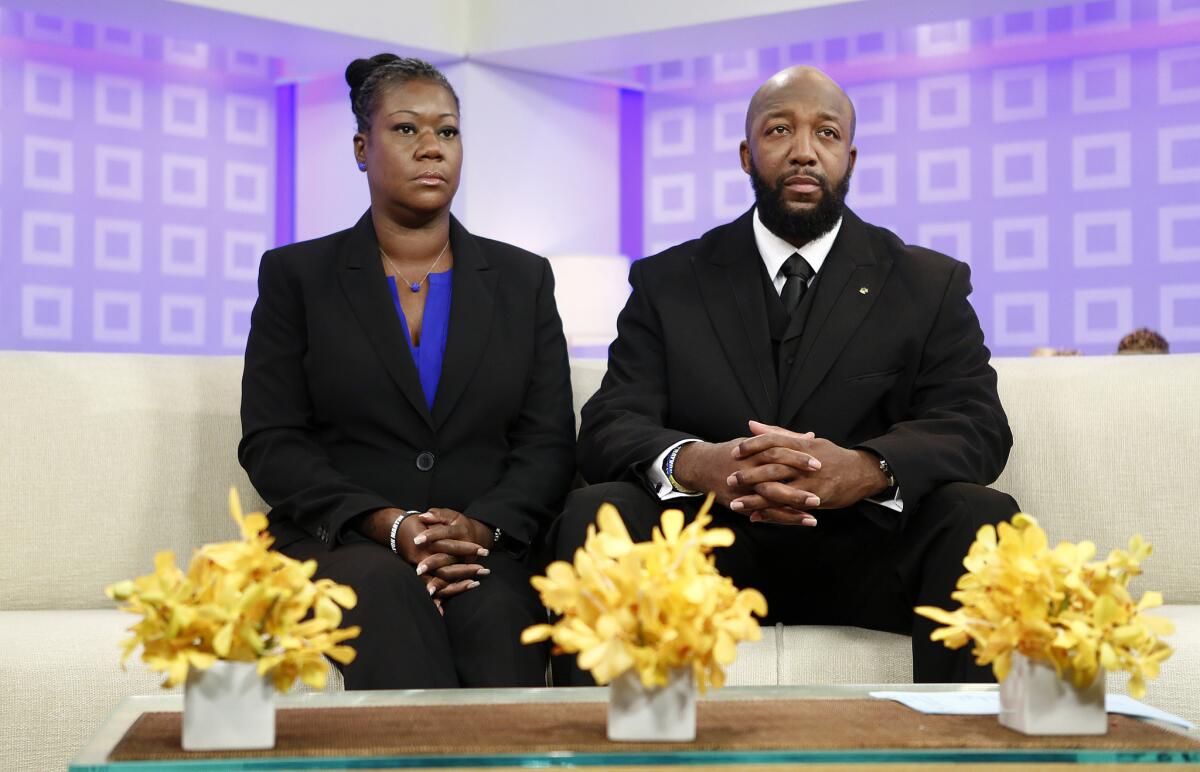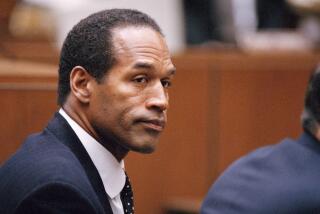Trayvon Martin, an American son

The timing of the two stories couldn’t be better: the not-guilty verdict in the murder trial of George Zimmerman in the killing of black teenager Trayvon Martin, and a major reassessment of the state of black families in America done in advance of the 50th anniversary of the Moynihan Report.
What do these two things have in common, beyond stoking racial controversy? At first glance, not much. The July 13 verdict was an Internet-fueled flash point for public outrage about the latest legal and moral injustice meted out to an unarmed young black man who was wrongly but fatally profiled as a criminal.
The Moynihan Report, produced in 1965 by Sen. Daniel Patrick Moynihan, was a dense sociological analysis that identified the nonnuclear black family as the core of racial problems threatening to undo black America even as the civil rights movement reached its height. Partly because it clashed with the self-affirming spirit of the times, the analysis was quickly denounced by many blacks as racist — its central thesis was that the black family unit had been broken by the legacy of slavery, leading to a “tangle of pathologies” in urban ghettos — and the report became politically toxic.
VIDEO: Obama reflects on race, says ‘Trayvon Martin could have been me’
Yet it was never forgotten. The troubled black family remains a major theme, especially for conservatives, when discussing such disparate subjects as welfare reform, crime and education.
But there is a crucial difference between then and now. Condemnation notwithstanding, Moynihan’s report took the racial divide seriously and offered insights into the problem that are still relevant; most crucially, he cast a black crisis as one of national import that demanded a national response.
Today, the crisis of black families and black communities overall has been separated from that sense of bigger urgency, downgraded since the 1980s to a kind of permanent wedge issue that provides fodder for talk and reality shows rather than social reform.
The Open Society Foundations, the Urban Institute and Fathers Inc. are trying to revive that national focus with “The Moynihan Report Revisited,” which identifies one of today’s chief problems as being the lack of attention paid to those most under siege: black males. Not a bad angle, but it feels too narrow. It doesn’t help matters that in the last 20 years, the most pressing black male crises have been culturally mainstreamed as entertainment — the lifeblood of commercial hip-hop is the once-infamous “tangle of pathologies” that frame all those titillating and profitable narratives about gangstas, baby mamas and other mainstays of thug life.
All of which brings us directly to Trayvon Martin. The 17-year-old was killed because he was seen by Zimmerman and many others as a potential threat, a conflation of racial fact and fantasy that obscured the more critical fact that he was a child and somebody’s son — a loved member of a family.
The battle lines were drawn long before the trial even started. Zimmerman supporters circulated images of Trayvon as a wannabe bad guy and lone predator who seemed much older and harder than 17, complete with a gold grill on his teeth; Trayvon supporters emphasized the dignity and caring nature of his parents in an attempt to counter not just those stereotypes but the bigger assumptions that broken black families produce broken and potentially dangerous kids.
Trayvon’s parents were divorced, hardly uncommon in America, but viewed through a racial lens, that was seen as just one more bit of black pathology. But the truth is that black families, whether nonnuclear or traditional, poor or middle class, are all subject to damning stereotypes and to a deeply rooted belief that they are somehow lesser.
The recent acknowledgments of high-profile black men such as Atty. Gen. Eric H. Holder Jr. that they have been racially profiled by police speak to this long-standing truth. Black pundits such as MSNBC’s Melissa Harris-Perry have also aired their personal frustration and a sense of what she poignantly called the “demoralization” of all black people in the wake of the not-guilty verdict.
The question now is whether Holder or anyone high up in the government, including our first black president, will be able or willing to make black crises a matter of national import again.
I have to say, I am not hopeful. Obama’s unscripted remarks on Friday about race and his own experiences — an elaboration of his comment last year that “if I had a son, he’d look like Trayvon”— were undoubtedly a relief to many who’ve been frustrated by the president’s calculated silence on everything racial. There are reasons for that silence. From the beginning, he has gotten fierce blowback for even the mildest expressions of empathy with other blacks. His public addresses to black audiences have stressed so-called family values and personal responsibility on the part of black men, steering clear of systemic problems such as racism and employment discrimination. The Moynihan Revisited project, despite some laudable goals, has more than a whiff of that do-it-ourselves conservatism about it.
Personal responsibility has a role to play, of course, but that conversation can only take place in a society equally determined to address the broader systemic issues.
Pulling back from the philosophical extremes that all Americans — black, white and other — have accepted for far too long as normal will take much more than another report or retooled initiative. Real and sustained change on the racial equality front has to be a family effort, an effort of the entire dysfunctional American family to which we all belong.
Erin Aubry Kaplan is a contributing writer to Opinion and the author of “Black Talk, Blue Thoughts, and Walking the Color Line.”
More to Read
A cure for the common opinion
Get thought-provoking perspectives with our weekly newsletter.
You may occasionally receive promotional content from the Los Angeles Times.










